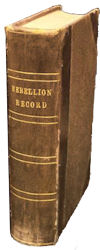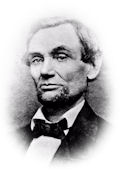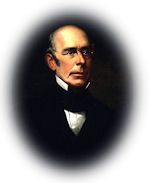To JOHN FORSYTH,
Mobile, Ala.
New York, December 19, 1860
My Dear Sir,—Your favor of 8th inst. reached me a few days ago, but I was prevented by indisposition from replying to it before. It was very gratifying that you should have deemed my last letter to you of sufficient import to give it a place in your journal, but I regret deeply that so far from advocating the policy of co-operation, and deliberate, united action by the Southern States, for which I appealed to your support, I find your paper as warmly and uncompromisingly for immediate and unconditional secession as ever Yancey has been.
When we Douglas men of the North stood by our colors against the combined onslaughts of the Black Republicans and the administration, we were upheld in our struggle by the consciousness that we were fighting the battle of the Union and the Constitution against fanaticism North and sectionalism South. We fought to the last, and hopefully to the end, because we trusted that our friends at the South would never forsake that glorious cause, even in defeat, which our noble banner-bearer had so fearlessly defended during the canvass in every Northern and Southern State.
Douglas declared repeatedly in that memorable campaign, that the election of Mr. Lincoln was not, in his judgment, a justifiable ground for secession. How do those stand now before the country, who, after having been the most prominent instruments of his nomination, and having adhered to him after this declaration, and now, because he is defeated, forsake the Union-loving principles which were the main hold he had upon the American people? I know that the disunionists at the South taunt those who counsel the more wise, efficient, and patriotic course of seeking redress within the Union, by calling them “submissionists;” but I, for one, would most certainly rather submit to the constitutional election of an opponent than to the terrorism evoked by a faction whose treasonable designs my best efforts had been exerted to defeat.
Both Mr. Bell and Mr. Douglas have, since the election, spoken warmly and manfully for the Union. Their adherents at the North, in the middle States, are proud and rejoiced at the stand these statesmen have taken; but how can our friends in the cotton States reconcile their actions of to-day with their professions only a few months back? I have read with great attention the leader from your paper, which you sent me, but I am sorry to say that I cannot in any way coincide with your views. I do not, and never will, believe that Lincoln’s election is an evidence of the overwhelming anti-slavery feeling at the North.
The principal battle was fought in our State; had we succeeded here, Mr. Lincoln could not have been elected. Now, it is well known that until within one short fortnight of the election, we were hopelessly divided, with the whole power of the administration against us. Disorganized, and wholly without means for even the most essential expenses of a campaign, we were forced into a fusion on the very eve of battle. With no earthly possibility of electing either of our three candidates, with a hasty and incomplete organization, and with the baneful influence of the October elections in Pennsylvania, Maine, and Indiana, brought about by the treachery of the administration, against us, with a great want of the necessary pecuniary means (the whole sum raised for the fusion ticket did not amount to $50,000 all told), with all these difficulties against us what did we do? Why, we polled 317,000 votes in our State for the fusion ticket, 30,000 more votes than were ever given before by the united Democratic party, when we gave the State to Pierce by 23,000 majority.
In a vote of 700,000, a change of 26,000 votes, say less than four per cent., would have given us the State. More than four per cent., by far, were made up of men who voted for Lincoln because they were disgusted with the administration, while thousands and thousands were led into the mistake of voting with the Republicans, though not holding one single principle in common with them, because they knew that Lincoln was the only candidate who could be elected by the people, and considered that the greatest evil which could befall the country would be an election by the House.
Hundreds of men holding sound principles on the Constitutional rights of the South, were, to my certain knowledge, led into that mistake. They had been told by a distinguished Senator from one of the cotton States, as late as last May, in a speech delivered in the halls ot Congress, and sent in hundreds of thousands all over the country, that Mr. Lincoln had proved himself, in his controversy with Douglas, in 1858, a very conservative and unobjectionable man to the South, as compared with the latter. Why should they not vote for him now, and so prevent the terrible excitement and prostration of all material interests, which a contested election in Congress, dragged on until next March, would inevitably bring upon the country ? I have had to fight these arguments over and over again before the election, and meet daily now with men who confess the error they have been led into, and almost with tears in their eyes, wish they could undo what they helped to do.
No, my dear sir, the evidence is too clear; we owe the election of Lincoln only to the misrule of the present administration, and to the unfortunate dissensions in our own party. If, as you say, the public mind had become vitiated by the incendiary teachings of the Abolition press, there can be, on the other hand, no denying that a healthy reaction is overtaking us with giant steps. Look at the late scenes in Boston, hitherto the sanctum sanctorum of Abolitionism; look at their municipal elections.
If I only could have you here for a few days, I am sure you would be convinced, and agree with me, that the surest redress for the South is within the Union. The ball is in motion, and nothing can stop it except the inconsiderate and hasty action of the South herself. If it has taken the Abolition press and pulpit forty years to poison a portion of the public mind at the North, do we ask you too much by entreating you to give us only three months, in order to remedy this evil?
Mr. Toombs himself proposes now that Georgia should not secede from the Union until the 3d of March, and I certainly think that nobody can be charged with lukewarmness in the South by following his advice.
If Georgia and Alabama will leave South Carolina to pursue her own mad career alone, and declare in convention that they will secede on the 3d of March, unless their rights in the Territories are guaranteed to them, under the Constitution, and the personal-liberty bills of some of the Northern States are repealed, I have a strong hope that we may save the Union, and place Southern rights on a sound and lasting footing. I know that powerful agencies among the Republican leaders in our State, and elsewhere, are now at work, which look to that end. Weed is out boldly and fearlessly for such a policv, and I have every reason to believe that he will ere long be powerfully supported.
Now, one more point which I cannot leave unnoticed in the article which you send me, and then I will not trouble you any longer.
You charge the desire for concessions, on the part of the North, to mercenary motives. I think this is unkind to your friends, and certainly unfair as regards my own State and city.
We are actuated by principles of right and justice, but above all rises the warm and undying attachment to the Union, which with me, and all those who unite in my efforts for the good cause, is unsullied by one mean or sordid motive. If it were otherwise, and if we did only look to our own material interests, and those of our city, we should not deplore the dissolution of the Union. New York, in such a catastrophe, would cut loose from the puritanical East, and her protective tariff, and without linking her fortunes with our kind but somewhat exacting Southern friends, she would open her magnificent port to the commerce of the world. What Venice was once on the sluggish lagoons of the small Adriatic, New York would ere long become to the two hemispheres, proudly resting on the bosom of the broad Atlantic, and I am afraid sadly interfering with the brilliant but fallacious hopes of the Palmetto and Crescent cities.
I prefer, however, to leave to my children, instead of the gilded prospects of New York merchant princes, the more enviable title of American citizens, and as long as God spares my life I shall not falter in my efforts to preserve to them that heritage.







